You won’t be able to play Monument Valley 3 unless you have an active Netflix subscription. That means that if, at any time, your subscription drops, you will lose your access to the game. I know you know that – I know you’re more than aware of how subscription services work – but it’s a novel situation for Monument Valley nonetheless, a series that has never been hidden away behind a subscription before.
Monument Valley 1 and 2 were premium mobile games you paid five pounds for and then they sat on your mobile device forever. That was part of their charm: they were forever games you could install, play and forget about, then pull out again whenever you needed to – whenever you had a journey to fill or needed somewhere calm and relaxing to go to. They were games where you could twirl around worlds of impossible architecture until your mind spun away in them. But not so with Monument Valley 3, whose required Netflix subscription is a notable change in a game quietly full of notable changes, as I discovered when I visited Ustwo’s office in London.
It’s a chic office, a converted warehouse kind of space, all chonky slabbed walls with soft furnishings and lots of natural light pouring in. There are colourful accoutrements on the wall from the Ustwo Games journey so far – memorabilia gathered while making games such as Assemble with Care, Alba: A Wildlife Journey, Desta: The Memories Between and, of course, Monument Valley, the series that started it all. Released in 2014, Monument Valley put Ustwo Games – itself an offshoot of the larger digital production company Ustwo – on the map, earning the studio a BAFTA award (spotted on the shelf) and global recognition. The game was spotted in an episode of US political drama House of Cards, and had celebrities such as Ariana Grande, with her huge reach and influence, enthusing about it on social media. Monument Valley is unquestionably the lifeblood running through the studio, and this third iteration is now a week away from arriving, seven years after Monument Valley 2.
Immediately, what’s apparent is how much the Monument Valley team has changed. The faces we saw on the BAFTA stage 10 years ago, receiving the award still proudly displayed now, are now long gone. Game director Neil Macfarland left in 2018, more than half the series’ life ago, and originating lead designer Ken Wong left in 2016, to make Florence, which he would later face accusations of abusive workplace behaviour for. Today, the team I meet is new – relatively speaking – and the atmosphere is calm. There are around 28 people on the Monument Valley team currently, and around 40 at the studio more widely. The handful of senior leads I meet were in the core team which established Monument Valley 3 a few years ago.
There’s new game director Jennifer Estaris, who joined in 2021 to help make Monument Valley 2’s add-on The Lost Forest, which, thematically speaking, has a lot in common with Monument Valley 3. There’s new lead designer Emily Brown, who led design on the studio’s wonderful Alba game, which we Recommended in our Alba review. There’s new lead artist Lily Ibrahim, who joined in 2020, new lead producer John Lau, who joined in 2021, and new composer Lucie Treacher, who joined in 2023. The message is clear – and underlined in a presentation just in case I missed it: this is a fresh, diverse team of multiculturalism. Or as CCO Danny Gray eloquently put it to GamesIndustry.biz earlier in the year, “[It’s] also not just a group of guys, which is what Monument Valley 1 was.”
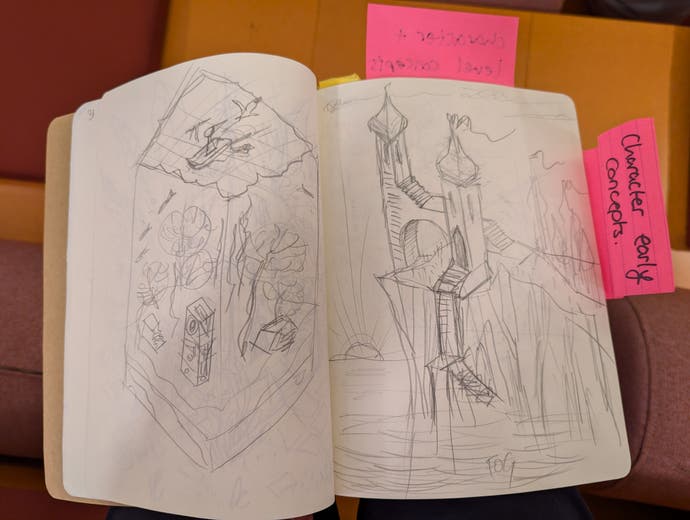
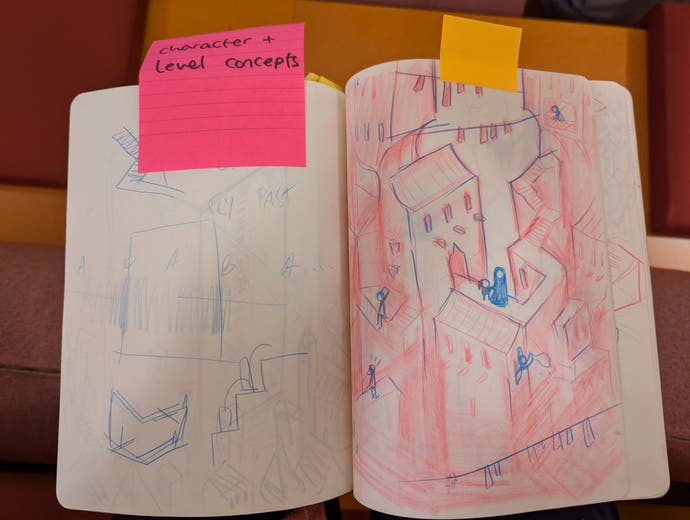
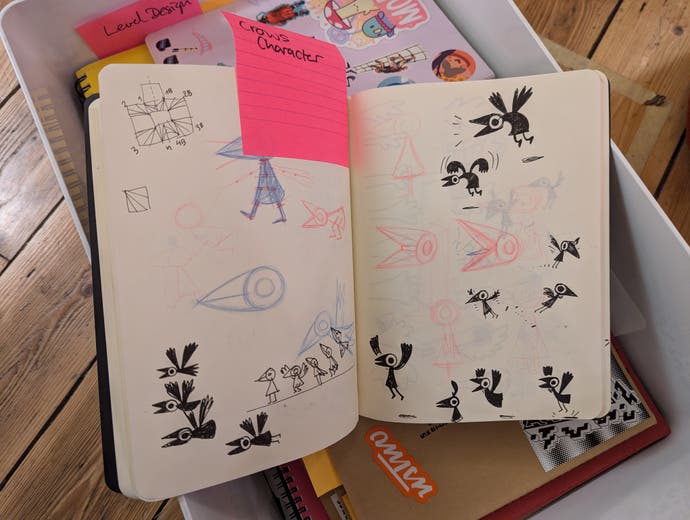
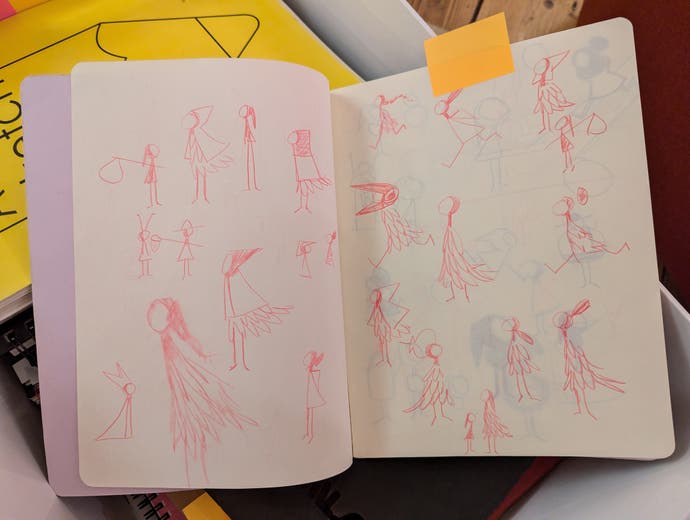
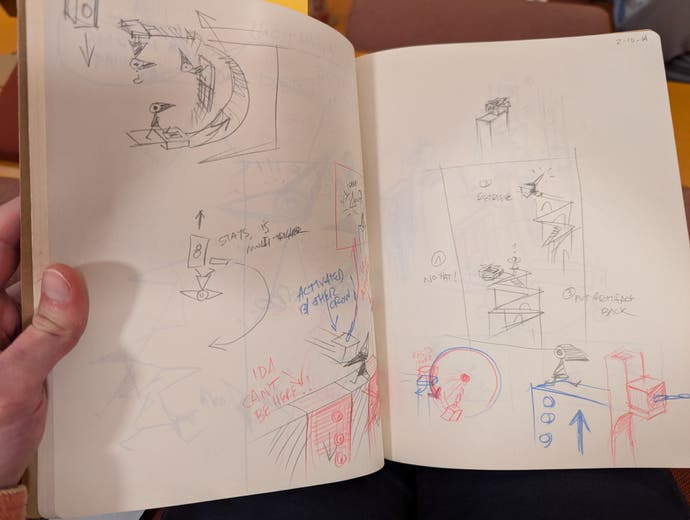
This is important because, through these new people, new perspectives have arrived in Monument Valley 3, and these new points of view help it feel gently quite different to the games that have come before. Although don’t get me wrong, it’s still undeniably Monument Valley, a game about shifting architectural landscapes to realign pathways, and finding unlikely routes through its puzzles – as if reconfiguring the impossible walkways in an MC Escher picture, in order to walk a person around it.
One of the most obvious changes is the theme, which plays heavily on the natural world and helping it recover from a climate-based disaster. This is a theme that runs strongly through the studio, which is never shy of trumpeting its admirable B Corp certification, which recognises a company for attaining high standards of social and environmental performance, transparency and accountability, according to the B Corp website. It’s also a theme that aligns personally with many people on the team, Estaris included, who’s a member of the Playing for the Planet Alliance, which organises the Green Game Jam and is devoted to making sustainability changes across the games industry. What it means for the game is there’s a kind of nature versus architecture theme going on, where plants grow and wrap around buildings, bringing curves and natural shapes to the precise angles we’ve seen before.
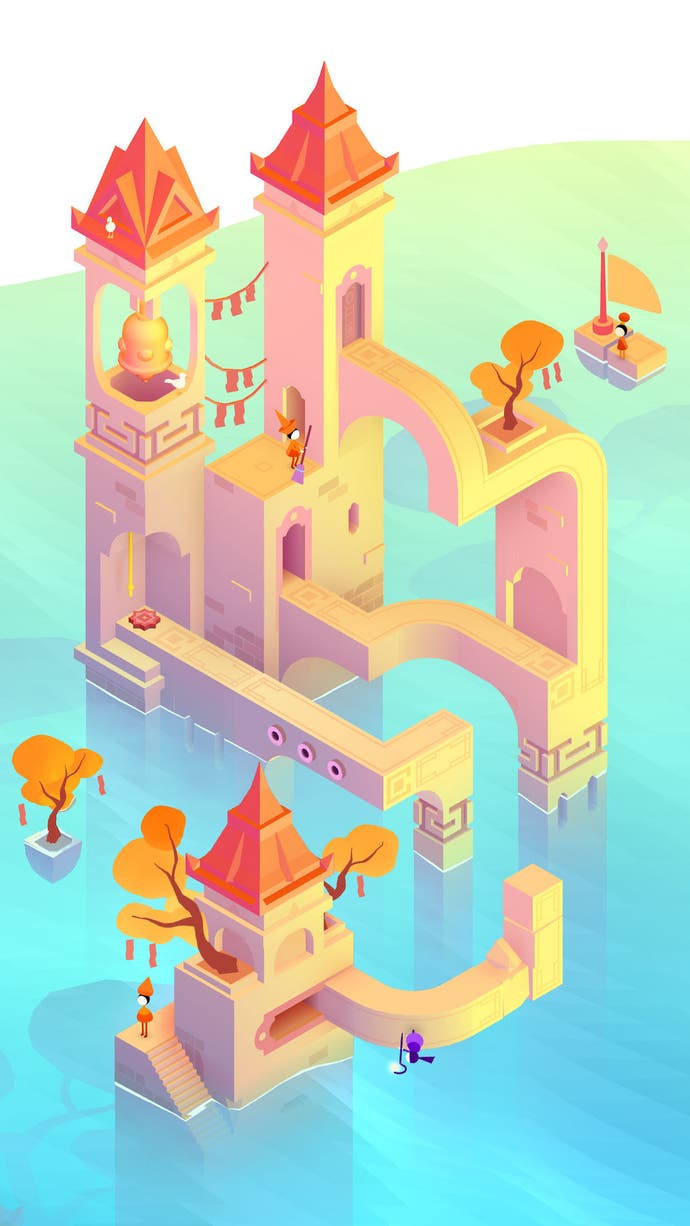

But it’s a theme that’s brought new mechanics, too, the most notable of which is the ability to hop in a small boat and sail around its world – a freeform traversal mechanic unlike anything we’ve ever had in the series before. Hold your finger on the screen and you can guide a little boat around, sailing wherever you will – usually to one of the many islands which represent a different puzzle, or set of puzzles. It’s liberating given the tight constraints the series is known for.
Around that there’s a visual and audible difference, too – a sense of a broader and more worldly influence. There’s a pastelly warmth to the game’s colour palette, not to mention a brand new undulating sea and wealth of gameplay opportunities its arrival brings. Treacher’s arrival on the music team, and her skills in orchestration and eclectic instrumentation have greatly expanded the breadth of the music you’ll hear. One level in particular that’s referenced while I’m there is an origami level, where platforms fold and unfold around you, as you rotate the screen, making paper-scrunching noises and scuffling sounds as you move around it. It’s minimalistic, elegant, and it radiates a crayon-rich hue. It’s delicately spectacular.
But underscoring all these outward changes is a much more seismic shift that’s been taking place behind the scenes of Monument Valley 3’s development, and that’s Ustwo’s relationship with their new publishing partner, Netflix Games. This has changed how Monument Valley 3 will be released – you’ll be able to download it from the Google Play and App Stores but you will need to log into your Netflix account to play it. The biggest surprise, however, is how it will be supported after release. This is going to be a live service game of sorts, though not in an insidious sense. Additional content will be released for the game for at least a year after launch in the shape of seasonal puzzles and storied chapters, though there won’t be any charge for it – an added benefit of being behind a subscription. That said, how long that extra support lasts for depends on how well the game does; it’s something of an experiment.
But why Netflix at all? Well, transparently, because Monument Valley 3 probably wouldn’t exist without Netflix’s help. As Estaris says, after a short pause: “We could talk a little bit about the game industry and where it is nowadays…” She doesn’t elaborate but she doesn’t need to; layoffs across the industry have been rampant and widely documented in the past year or two, though Ustwo has remained steady. “I think this is a question about how the premium mobile industry is doing,” she adds, to which I respond by asking how the premium mobile industry is doing. She laughs. “It’s doing not so well,” she says
Lead producer John Lau elaborates: “If we look at the modern mobile gaming landscape, I don’t think the first Monument Valley could survive [today] if it was just put on as a premium experience and you paid, what, 4.99 for it.” The alternative would be a free-to-play Monument Valley game with in-app purchases, but that’s not a business model Ustwo wants. “A Monument Valley game in a free-to-play-inflected world would not look like a Monument Valley game,” Lau says. So, there’s Netflix.
It’s not a new partnership for the studio: previous game Desta was a partnership with Netflix too, which, incidentally, also came out on Steam and Nintendo Switch seven months later, though there are no additional platforms beyond “Netflix Games” mentioned for Monument Valley 3 yet (and no one will say anything more than that when I question them about it either). Ustwo has two other games in development right now as well, both of which are currently under wraps, but I wouldn’t be surprised if they, too, also involve Netflix in some way. The studio even has – as seems to be very on-trend in gaming at the moment – animation plans for Monument Valley, as evidenced by an animated short that’s launching the same day as the game on Netflix: December 10th. “It’s dipping a toe,” Estaris says, “and we’ll see how people respond.” And that’s of course a very good fit for Netflix.
But will Netflix be a good fit for Monument Valley? Will it hinder the game from reaching the vast audience Monument Valley has before – 150-160 million people, I’m told – or will it help the game to spread further to the 280-something million people with a Netflix sub? “With Netflix, we can reach players that haven’t been exposed to the Monument Valley series at all,” Estaris says, enthusiastically. “And of course with tie-ins to their different stories – the films and series – there’s just a lot of opportunities to explore in that,” she adds.
How you feel about the Netflix factor presumably depends on whether or not you have a subscription. I do, so to me, this can look like added value, not that I’ve ever played a Netflix game before – I’m just not used to it being a platform for games yet. But if you don’t have a Netflix subscription, this is an additional monthly outlay that may be a step too far for some. I doubt whether Monument Valley 3 alone will convince you to pay, though it does also join a surprisingly well-stacked catalogue of other great games, including Oxenfree, Into the Breach, Terra Nil, GTA: Vice City, The Case of the Golden Idol, and more. Regardless, as I depart the Ustwo Games studio, I can’t help but feel a lingering sense of uncertainty about Monument Valley’s future. Will this third entry bang in a big way or arrive to a more muted reception?
It’s a sign of the times, and telling, I think, that one of the early stars of mobile gaming cannot now exist without being part of a subscription service. Thankfully, the studio seems to be in good health, and Monument Valley itself seems to be in fine form in this third game – perhaps the best form it has ever been in. Then again, how many times can you surprise people with the same idea? Perhaps diminishing returns are inevitable. So this is where I leave Ustwo, turning the page on a new chapter. Will Monument Valley 3 live up to the legacy the studio has been built upon? Will the changes work? We will have to wait and see.
fbq('init', '560747571485047');
fbq('track', 'PageView'); window.facebookPixelsDone = true;
window.dispatchEvent(new Event('BrockmanFacebookPixelsEnabled')); }
window.addEventListener('BrockmanTargetingCookiesAllowed', appendFacebookPixels);






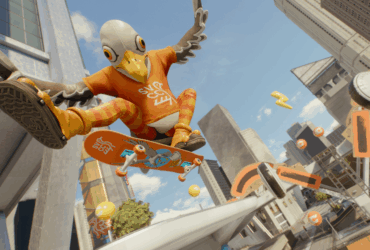





Leave a Reply